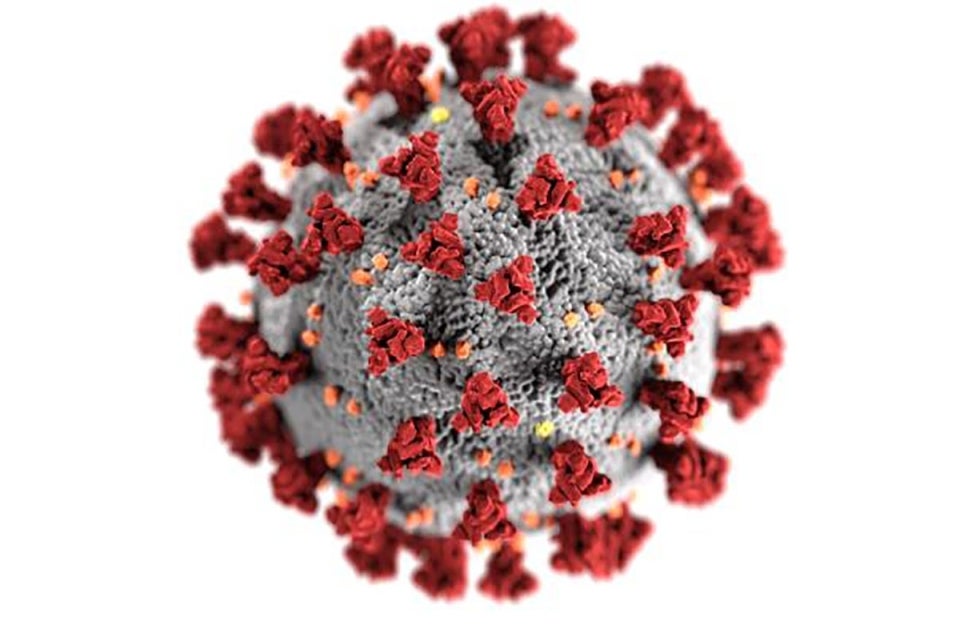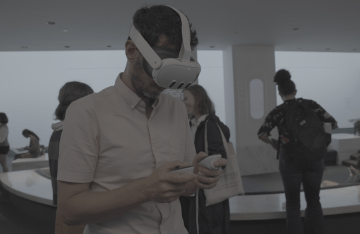FactCheck.org Debunks Coronavirus Myths
The work to combat misinformation about the virus has been cited in many media outlets.

Photo Credit: Centers for Disease Control/cdc.gov
- Social media sites have been used to spread false claims and conspiracy theories about the coronavirus.
- FactCheck.org has addressed the coronavirus’s origins, symptoms, death toll, transmission, and U.S. cases.
Since China first reported an atypical cluster of pneumonia cases in Wuhan in late December, the internet has been swarming with myths about the virus responsible for the outbreak, the novel coronavirus (2019-nCoV). To combat misinformation about the virus, which has sickened thousands and led to more than 500 deaths, the Annenberg Public Policy Center’s FactCheck.org has published a series of articles countering common misunderstandings and mistruths.
FactCheck.org’s work debunking coronavirus myths has been cited by news organizations across the world and its fact-checkers have been interviewed by English-language stations serving Korean and Chinese audiences.
China’s National Health Commission first reported the coronavirus outbreak in the city of Wuhan on December 31, 2019. On January 30, 2020, the World Health Organization declared a global health emergency to help mobilize international aid and political support to contain the outbreak. By Feb. 6, 565 people had died from the virus, two in Hong Kong and the Philippines and the rest in China, according to the New York Times. Globally, 28,285 cases were confirmed and an additional 24,702 cases were suspected, according to MSN.com.
Despite the facts, Facebook, Instagram, Reddit, and other social media sites have been used to spread false claims about the scale of the virus, with some posts declaring that as many as 10,000 people had died from infection, as well as conspiracy theories about the virus’s origin. Here are some of the most prevalent coronavirus myths, as debunked by the team at FactCheck.org:
- Some social media posts claim that a vaccine is available for the coronavirus. That’s “bogus” (Matthew Frieman, a coronavirus researcher at the University of Maryland). These posts refer to patents for different viruses.
- A Facebook post falsely blamed comedian and actor Sam Hyde for the spread of the new coronavirus. Though researchers are still working to determine its source, evidence indicates that the virus’s origin was zoonotic (transmitted from animals to humans), not the result of bioterrorism, as the post claims.
- Social media sites and blogs have propagated the myth that “thousands” to “10,000” deaths from the coronavirus had gone unreported because of Chinese government censorship. When FactCheck.org published its story on Jan. 27, the estimated death toll was 81.
- Social media posts erroneously claimed that a Chinese husband-and-wife spy team working in a Canadian government lab sent “pathogens to the Wuhan facility” before the outbreak of the coronavirus. FactCheck.org contacted spokespeople for Canada’s Public Health Agency and the Royal Canadian Mounted Police; both agencies decried the claims as false.
- The conspiracy theory website InfoWars distorted the findings of a Gates Foundation emergency preparedness exercise to claim that “GATES FOUNDATION & OTHERS PREDICTED UP TO 65 MILLION DEATHS.” The Gates Foundation’s exercise dealt with a “very severe” pandemic involving a fictional virus, not the novel coronavirus, and the exercise did not make predictions about death tolls.
- Posts on Twitter and Facebook falsely suggest that because Clorox and Lysol products list “Human Coronavirus” on their bottles, the novel coronavirus was already known by scientists. In this case, “Human Coronavirus” refers to a group of viruses, and Clorox and Lysol products were tested against a strain of human coronavirus that causes the human cold, not the novel coronavirus behind the outbreak in Wuhan.
- In a comprehensive Q&A, FactCheck.org sums up what is known about the novel coronavirus’s origins, symptoms, death toll, transmission, and U.S. cases.
The complete series of posts on coronavirus can be found here.
Cited by news media
The articles, in which FactCheck.org debunks coronavirus myths, led by science writer Jessica McDonald and staff writers Saranac Hale Spencer and Angelo Fichera, have been cited on domestic and international news sites, including:
- “The false information was posted on January 21, and was still up a week later on a public page, despite being linked to in a story by the Factcheck.org about it and other posts spreading inaccurate information on Facebook. The post has been shared 4,800 times, and has 432 comments. One comment to the false Facebook post includes a link to a website that calls the coronavirus itself a hoax and suggests that drinking Corona beer alone will cure the virus. Facebook formed an alliance with media outlets and other fact checkers, including FactCheck.org, to help it determine what news was false and either remove the posts or label them as false.” (Jan. 29, 2020, CBS News)
- “On Jan. 25, hedge fund manager Kyle Bass tweeted this version of the hoax. His tweet was retweeted over 12,000 times and has gone viral as a screenshot on Facebook. Factcheck.org, one of the platform’s official independent fact-checking organizations, debunked it, and on Facebook, screenshots of Bass’s tweet now appear with a ‘false information’ disclaimer. Eric Morrissette, a spokesperson for the Public Health Agency of Canada, told Factcheck.org, ‘this is misinformation and there is no factual basis for claims being made on social media.’” (Jan. 31, 2020, BuzzFeed)
- “The nonprofit website FactCheck.org, which has a partnership with Facebook that allows users to flag fake news, has also been debunking false clams linked to the virus, such as one that claims that it was made in a lab and a vaccine was available.” (Jan. 31, 2020, MarketWatch)
Other news outlets that have cited or republished FactCheck.org’s articles include Vox, USA Today, NBC Universal websites, Hearst TV websites, The Star (Malaysia), 20 Minutes (France), Taiwan FactCheck Center, Ruhr 24 (Germany), Daily Hunt (India), and tbs eFM (Korea).
Media Contact
Michael Rozansky
(215) 746-0202
michael.rozansky@appc.upenn.edu



